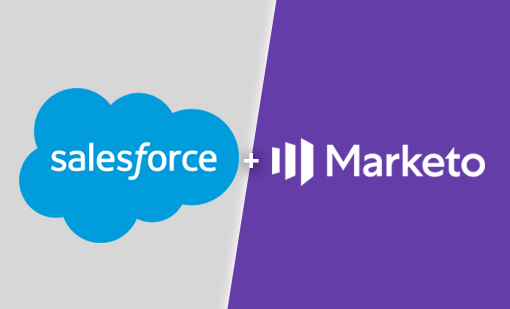In today’s marketing world, keeping customer data safe is more important than ever. With the growing volume of data collected and changing regulations, marketers must focus on data privacy.
Marketers need to prioritize data privacy and comply with regulations to build trust with their audience and avoid legal repercussions.
Data privacy refers to the protection of sensitive information collected from individuals, including personal and financial data. In marketing, this involves how companies collect, store, and use customer data while ensuring it remains secure and private.
Importance of Data Privacy
Maintaining data privacy is crucial for establishing trust with customers. When consumers feel confident that their data is safe, they are more likely to engage with brands and share information. This helps improve marketing results. Moreover, with the rise of data breaches and privacy concerns, businesses that focus on data privacy gain a competitive advantage and strengthen their reputation.
Evolving Regulations
The landscape of data privacy regulations, including the General Data Protection Regulation (GDPR) and the California Consumer Privacy Act (CCPA), is constantly evolving. These laws aim to protect individuals’ privacy rights and impose strict requirements on businesses handling personal data. Adhering to these regulations not only ensures legal compliance it also shows that your company cares about doing the right thing with people’s information.
Understanding Data Privacy Laws
GDPR – The GDPR, implemented in the European Union, sets guidelines for data collection, processing, and storage. Companies must get clear permission from individuals before collecting their data. GDPR also gives people rights over their information. To comply, businesses need to build privacy into their processes, assess data risks, and appoint a Data Protection Officer in some cases.
CCPA – (California Consumer Privacy Act) applies in California. It gives consumers the right to know what personal data businesses collect about them and to opt out of selling their data. Non-compliance can lead to penalties. Companies under the CCPA must be transparent about data practices, offer opt-out options, and update privacy policies accordingly.
Other Relevant Laws – Apart from GDPR and CCPA, there are other global data privacy laws. These include specific rules for different industries and international data transfer agreements. Adhering to these laws is crucial for marketers, depending on their target audience and market.
Impact of Data Breaches on Marketing
Data breaches can have severe consequences for marketing efforts.
Trust and Reputation – When a data breach occurs, it can damage a company’s reputation and erode customer trust. Consumers may be hesitant to share their information with a company that has experienced a breach. Rebuilding trust requires clear communication, prompt actions to fix the issue, and proactive steps to prevent future breaches.
Legal Consequences – Non-compliance with data privacy laws can result in fines and legal actions. Marketers need to prioritize data security and compliance to avoid these risks. Implementing strong data protection measures, conducting regular audits, and staying informed about regulatory changes are crucial steps to minimize legal risks.
Strategies for Ensuring Data Privacy Compliance
To comply with data privacy regulations, marketers can implement several strategies.
Data Encryption – Encrypting sensitive data ensures that even if unauthorized parties access it, they can’t read it without decryption keys. Using robust encryption protocols, secure key management practices, and data masking techniques enhances data security.
Consent Management – Implementing robust consent management systems helps companies obtain explicit consent from individuals before collecting or using their data. This includes providing clear information about data processing purposes, offering detailed consent options, and respecting user preferences for data sharing.
Regular Audits – Conducting routine audits of data practices ensures compliance with regulations and identifies areas for improvement. Audits may cover data access controls, data retention policies, third-party data-sharing agreements, and incident response procedures.
Balancing Personalization and Privacy
In marketing, it’s crucial to find the right balance between tailoring marketing efforts to individuals and respecting their privacy.
Opt-in/Opt-out Options – Providing clear opt-in and opt-out options gives customers control over how their data is used for marketing purposes. This includes allowing users to choose the types of communications they receive, the frequency of interactions, and the channels used for outreach.
Transparent Data Usage Policies – Transparently communicating data usage policies helps build trust with customers and demonstrates a commitment to data privacy. This includes providing easily accessible privacy notices, simple privacy settings, and user-friendly interfaces for managing data. By being transparent, customers can make informed decisions about their data and feel empowered in their choices.
Importance of Educating Marketing Teams
Educating marketing teams about data privacy is essential for compliance.
Training on Data Privacy – It’s essential to provide comprehensive training on data privacy laws and best practices. This ensures that marketing teams fully grasp their responsibilities. Training programs may cover topics such as data handling procedures, consent management principles, data breach response protocols, and cross-border data transfer regulations.
Compliance Monitoring – Regularly monitoring compliance with data privacy regulations is key. This helps in identifying and addressing potential issues proactively. This includes conducting internal audits, evaluating data processing activities, reviewing agreements with third-party data providers, and promptly addressing requests from data subjects.
Leveraging Technology for Compliance
Technology can play a significant role in achieving and maintaining data privacy compliance.
AI and Machine Learning – AI and machine learning tools can analyze data patterns to detect potential privacy risks and improve data security measures. These technologies enable automated data classification, anomaly detection, predictive analytics for risk assessment, and real-time threat monitoring.
Data Management Platforms – These platforms centralize and safeguard customer data, making it easier to comply with regulations. They offer features like data mapping, tracking data lineage, managing consent workflows, and handling data access requests from subjects.
What are Your Thoughts?
In today’s marketing landscape, ensuring data privacy and complying with regulations is crucial. By focusing on protecting data, adopting strong compliance measures, and using technology wisely, marketers can earn the trust of their customers and navigate regulatory challenges effectively.
We value your opinion! What are your thoughts on data privacy and compliance? Share your views with us in the comments below.Be a part of our community for free and access the best resources, trends, and new technologies from peers and industry experts. You can also check out our other awesome blogs over here.





